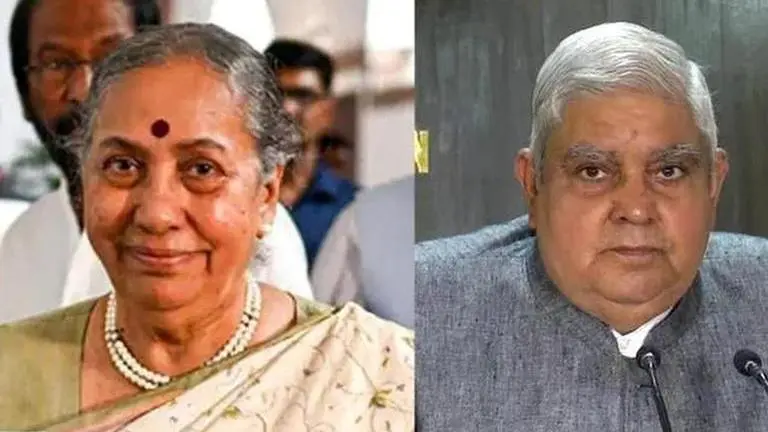Updated 6 August 2022 at 15:31 IST
Vice President of India: Salary, allowances, pension, tenure & all you need to know
After the President, the Vice President is the country's second-highest constitutional post. The leader's responsibility is to lead the Rajya Sabha. Read more.
- India News
- 2 min read

After the President, the Vice President is the country's second-highest constitutional post with the responsibility to lead the Rajya Sabha as the chairman of the Parliament's Upper House. The VP also serves as the President's caretaker in his/her absence. Below are the details related to the salary and other perks of the Vice President as the voting for the post between Jagdeep Dhankhar and Margaret Alva is underway:
Salary
The salary of the country's Vice President is determined by the 'Salaries and Allowances of Parliament Officers Act, 1953.' Because the Vice President is also the Chairman of the Rajya Sabha, the leader receives the Speaker's salary and benefits. The monthly salary of a Vice President of India is Rs 4 lakh. This was increased in the 2018 budget from the earlier salary of Rs 1.25 lakh per month.
Perks and allowances
In addition to the salary, the Vice President receives various kinds of daily allowances. Other perks include free medical care, free train and air travel, a landline connection, and mobile phone service. The Vice President also has personal security and staff. If the Vice President performs the President’s duties in their absence, then the VP will receive the president's salary and benefits as well. The Vice President will also have access to all of the President's facilities.
Pension
The Vice President of India receives 50 percent of his/her salary as a pension. They also continue to receive various benefits in addition to the pension. The Finance Ministry is responsible for paying the salary and pension to the Vice President.
Advertisement
Tenure
The Vice President serves a five-year term. They can be re-appointed any number of times. In the VP's absence, the Rajya Sabha's responsibilities are handled by the Deputy Chairman. If the President dies during his/her term, the Vice-President takes over. The Vice President can only play this role for a maximum of six months. Following that, a new President must be elected. Any Indian citizen over the age of 35 is eligible to become Vice President. The person should not hold any profit-making office.
Published By : Megha Rawat
Published On: 6 August 2022 at 15:28 IST
